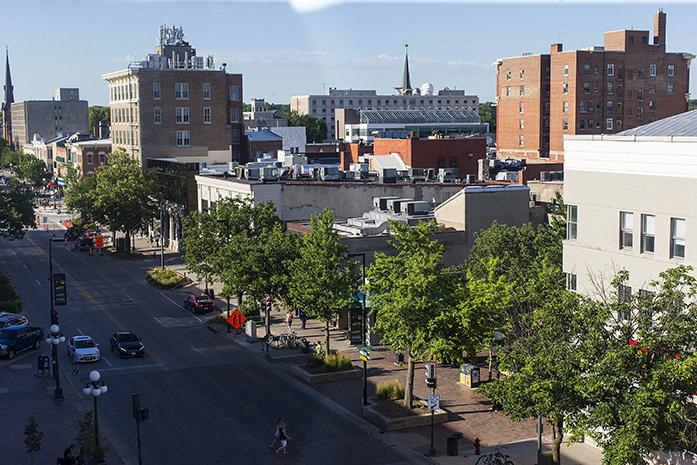By Molly Hunter
The city of Iowa City is now accepting applications from individuals, nonprofits, and businesses for affordable housing funds.
The funds being made available are part of $1.2 million in grant money being awarded to the city by the U.S. Department of Housing and Urban Development. The grant money is made up of Community Development Block Grant and HOME funding.
The funds will be used for projects in the realm of public security, public services, and affordable housing that meet the city’s CITY STEPS plan priorities.
“Public securities can be improvements to buildings that are owned and operated by nonprofits or by the city,” said Iowa City community development planner Kristopher Ackerson. “The … public service … money typically goes to nonprofits that provide some kind of service to low-income residents.”
The block grant must primarily benefit low-income people, said city neighborhood services coordinator Tracy Hightshoe. The HOME funds, meanwhile, can only be used for affordable housing projects.
Hightshoe said HOME money is typically used for acquisition of or building affordable housing, or for rehab on existing structures. Other projects, which fall under the affordable-housing umbrella, are tenant-based rent assistance and homeownership opportunities for those who qualify.
A minimum of $347,000 has been earmarked for affordable-housing projects, but more money may be added that pot later.
“We have projects right now that are underway, and sometimes those projects come in under budget,” Ackerson said.
When the money is allocated for the next fiscal year, beginning July 1, 2017, any leftover money may also be made available. It is hard to project how much money will be left over, Ackerson said.
Any leftover money must be funneled back into the program from which it originated, Hightshoe said.
“If we did a loan for a previous housing project [and] almost all of our loans get paid back, that’s considered program income. We have to use that for another [community development] or another home project,” she said. “It has to stay in the program where there was the initial outlay of funds.”
The way the money will be allocated to various organizations is difficult to predict.
“Sometimes, they can award $50,000, and sometimes, they’ll award $300,000 to a single project,” Ackerson said.
The rest of the $1.2 million will be portioned out by the City Council for city programs. The money will be funneled into projects encouraging economic development and the growth of neighborhood infrastructure. Some of it will also go toward financial assistance for local social service organizations and providing rehabilitation for owner-occupied housing.
The applications for the affordable-housing funds are due by noon on Jan. 13, 2017.
“We have the Housing and Community Development Commission, and that’s made up of nine residents of Iowa City,” Ackerson said. “They review the applications and make a recommendation to the City Council.”
The recommendations should be made sometime in early March of next year.
“Once the projects are awarded funds we have to do what’s called an environmental review,” Ackerson said. “That’s to make sure we don’t unwittingly provide funds to something that could harm the environment or harm the people who are going to use the project.”
After the environmental review is completed, the organization signs a contract with the city agreeing to use the money for its intended purpose.
Hightshoe said it is the responsibility of the applicants to document that they are serving low- to moderate-income people.
Two informational meetings will be held at Harvat Hall in City Hall. Potential applicants are encouraged to attend. The first informational meeting will be held Thursday at 11 a.m., and the second will take place at the same time on Jan. 4, 2017.
At the meetings, Ackerson said, the rules and requirements for applications will be made clear.
“We go over the timeline to apply for funds [and] the amount of funds available,” Hightshoe said. “We go through the federal regulations — the key ones that applicants should be aware of — and then we go over eligible activities and non-eligible activities.”
While these programs are not specifically directed at University of Iowa students, some of those who decide to stay in Iowa City after they graduate may find them useful later.
“I think it’s important that students who come to the university have the opportunity to stay in Iowa City after they graduate,” said Jacob Simpson, the UI Student Government liaison to the City Council. “A lot of what that comes down to is affordable housing.”
With the highest living costs in the state, he said, Johnson County must continue to make remaining in Iowa the most attractive option for graduating students.
“We need to encourage students to actually stay in the state after they graduate,” he said.



